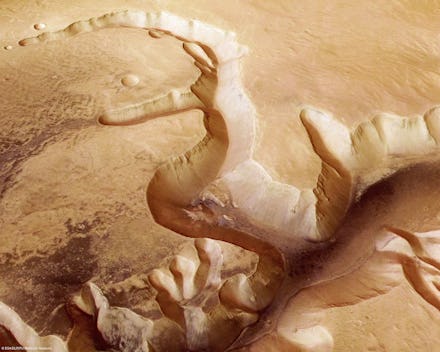Mars’ toxic soil might spell bad news for future settlements

Almost a decade ago, scientists discovered small amounts of a compound called perchlorate on Mars. It was actually pretty good news at the time — like the salt that keeps roads and sidewalks from freezing in the winter, perchlorate helps keep water on Mars liquid, even at cold temperatures.
But according to a paper published Thursday in the journal Scientific Reports, there might be a very big downside. Jennifer Wadsworth, who studies astrobiology at the University of Edinburgh in the United Kingdom, recreated Martian conditions here on Earth and watched how bacteria handled it.
If you were hoping to one day call the red planet home, her results are not particularly encouraging. Although we have our own problems with perchlorate here on Earth — too much of it can mess with the thyroid gland — the new paper suggests that perchlorate is particularly nasty on Mars. That’s because of the planet’s high dose of ultraviolet radiation. When Wadsworth exposed her bacteria to a Martian dose of both perchlorate and UV rays, they were dead within 30 seconds.
To make sure she wasn’t missing something else about the planet that might protect bacteria, Wadsworth tried more Mars mimicking. She ran the experiment at colder temperatures, on silica discs to match the planet’s rockscape and with other chemicals found on Mars. In every case, most of the bacteria died. The paper calls the Martian scenario a “toxic cocktail.”
It’s tricky to guess how a human’s experience of Mars would compare to the struggles of these bacteria, but given how much bacteria permeate the world around us, it’s difficult not to expect the toxic cocktail to make life harder for would-be Martians.